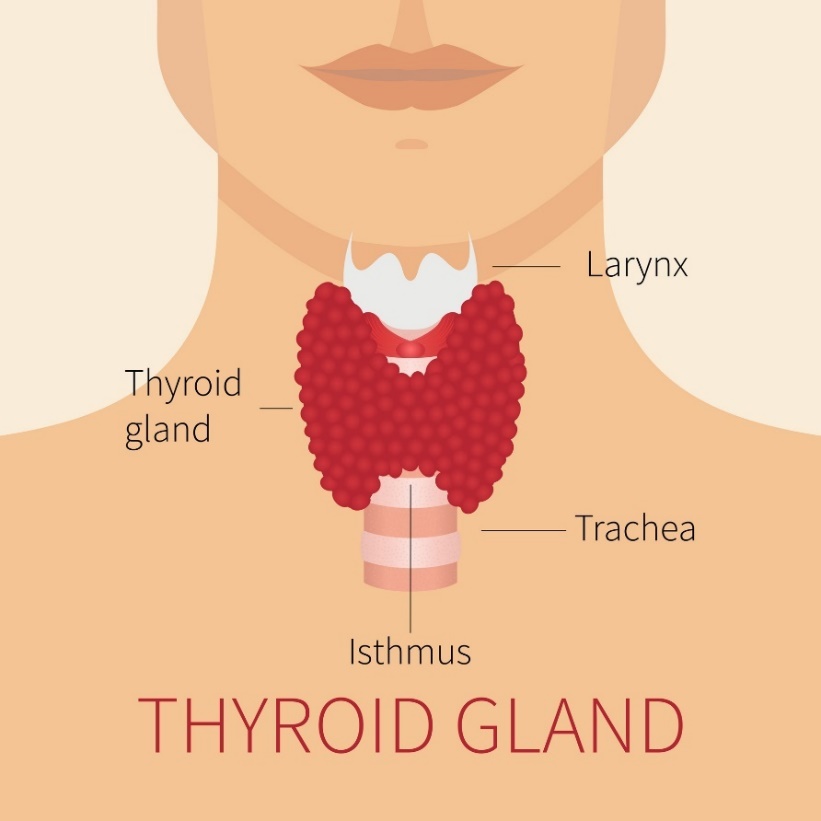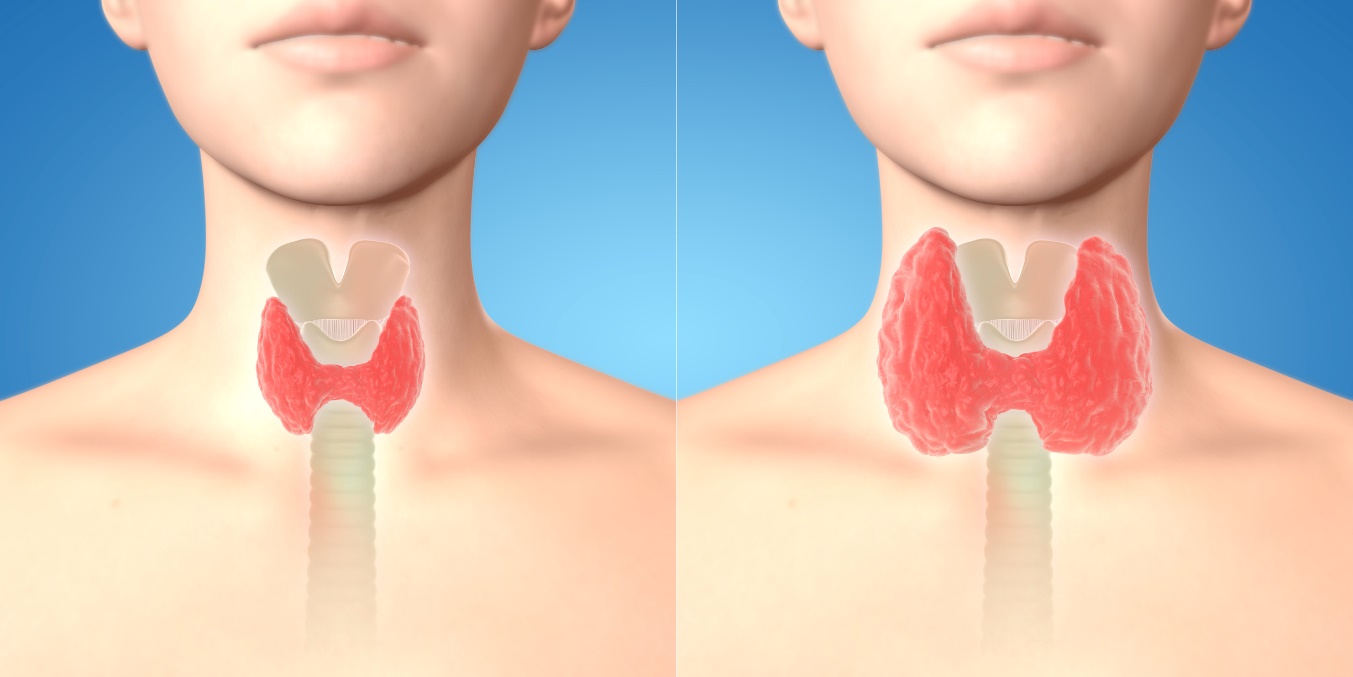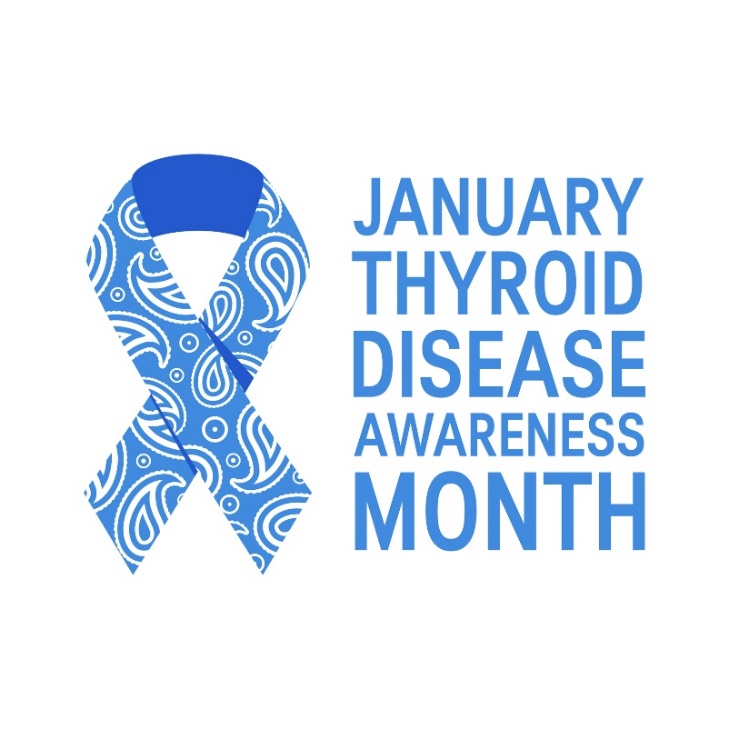- solen.sk - Thyroid disorders in pregnancy- their consequences, recognition and treatment. Solen. Peter Hnilica
- HÁNA, Václav. Endocrinology for practice. 2nd updated edition. Prague.
- medicinapropraxi.cz - Rational diagnosis and treatment of thyroid diseases. Medicine for practice. Jan Jiskra, M.D., Ph.
- thyroid.org - January is Thyroid Awareness Month. American Thyroid Association
- mayoclinic.org - Goiter
- my.clevelandclinic.org - Struma
- webmd.com - Struma
Enlarged thyroid gland: what is goiter, what symptoms and causes does it have?

An enlarged thyroid gland can cause various health problems related to breathing or swallowing. Why does goiter occur and how to treat it? When is it advisable to see a doctor?
Most common symptoms
- Malaise
- Sore Throat
- Pain when swallowing
- Hoarseness
- Spirituality
- Nausea
- Constipation
- Depression - depressed mood
- Diarrhoea
- Gaining weight
- Sweating
- Tingling
- Menstrual cycle disorders
- Swallowing disorders
- Tremor
- Slowed heartbeat
- Dry cough
- Tremors
- Fatigue
- High blood pressure
- Accelerated heart rate
Characteristics
The thyroid gland in a nutshell
The thyroid gland is a small organ located in the front of the neck in front of the laryngeal tube. It is shaped like a butterfly, smaller in the middle and has two broad lateral parts resembling wings. The thyroid gland is controlled by the central nervous system, specifically the pituitary gland.
The function of the thyroid gland is to produce the important hormones thyroxine and triiodothyronine. Thyroxine and triiodothyronine are involved in energy metabolism, weight regulation, thermoregulation, digestive and nervous system function, and many other activities of the body.
Hormone T4 thyroxine contains 4 iodide atoms and triiodothyronine contains 3 iodide atoms.

What is goiter?
Goiter is the name given to a morbid enlargement of the thyroid gland due to various causes. Goiter can be associated with decreased, increased or unaltered thyroid function.
The etiology of thyroid enlargement varies from improper lifestyle, effects of pharmacological treatment, pregnancy to autoimmune, benign or malignant thyroid disease.
A goiter does not necessarily indicate improper thyroid function. Even an enlarged thyroid gland can produce the correct amount of hormones in some cases. A goiter with normal gland and hormone function is referred to as a non-toxic goiter.
A goiter means enlargement of the thyroid gland itself, regardless of its function and the amount of hormones produced.
However, the resulting goiter should be considered as a possible basis for the development of increased or decreased thyroid function.
- Hypofunctional - reduced gland function
- Hyperfunctional - increased function of the gland
- Eufunctional - unchanged gland function
Most cases of goiter do not cause health problems. However, in some cases, their growth and increased pressure on the esophagus and pharynx cause health problems and breathing and swallowing difficulties.
Based on sight and palpation, goiter is divided into 4 stages:
- An enlarged thyroid gland is neither palpable nor visible
- The enlargement is palpable and visible only when the head is tilted
- Enlargement of the gland is visible with normal head posture
- The goiter is visible from a distance and causes neck deformity
Causes
Dietary iodine deficiency
Iodine is essential for the proper function and production of thyroid hormones. Insufficient dietary iodine intake can lead to goiter and other thyroid disorders.
Iodine deficiency goiter mainly affects developing countries and is more of a thing of the past in modern countries.
Excessive consumption of foods containing thiocyanates and so called strumigens such as broccoli, cauliflower, cabbage and forage can also contribute to iodine deficiency. They reduce the production of thyroid hormones.
Pregnancy
Thyroid disorders in pregnancy are divided into hyperfunctional and hypofunctional. They can arise both before the onset of pregnancy and after delivery as postpartum thyroiditis.
Thyroid hormones are essential for the proper development of the fetal brain and nervous system. Both untreated hypothyroidism and hyperthyroidism during pregnancy can have negative consequences for both the fetus and the mother.
In the first trimester of pregnancy, the mother's circulating levels of placental chorionic gonadotropin (hCG), which has a stimulatory effect on the thyroid gland, increase until approximately mid-pregnancy.
Thyroiditis
Thyroiditis is an inflammatory process of the thyroid gland. It causes swelling, pain and enlargement of the gland itself. Inflammation may be accompanied by a decrease or increase in the production of thyroid hormones.
This is especially inflammation arising after infectious diseases. There are several types of thyroiditis, but the treatment varies for each type.
Non-malignant thyroid nodules (nodular goiter)
When lumps (nodules) form in the gland tissue, the gland itself may become enlarged. Most nodules are benign and therefore do not lead to cancer. The nodules are either solid or filled with fluid.
In less common cases, nodules may grow to a size that causes problems with breathing or swallowing food.
Thyroid cancer
This is one of the most common cancers of the endocrine glands of the human body. However, its occurrence is rare among all cancers. Malignant cancer of the gland can cause goiter.
The disease is accompanied by other associated symptoms.
Autoimmune diseases
A representative of autoimmune disease of increased thyroid function is Graves-Basedow disease. It arises from an autoimmune reaction, when antibodies produced by the immune system incorrectly evaluate the thyroid gland as a foreign component for the body.
The thyroid receptors are mistaken for antibodies from the immune system that seek to destroy them. The thyroid gland is therefore forced to produce excessive amounts of the hormones thyroxine and triiodothyronine.
This condition is also called hyperthyroidism. The thyroid gland tries to meet the constant demand of the receptors. It increases its volume to produce even more hormones. It is also referred to as toxic goiter.
Hashimoto's disease is an autoimmune disease of reduced thyroid function. In this case, the production of thyroid hormones is completely blocked by the antibodies of the immune system. When the level of thyroid hormones in the blood is reduced, hypothyroidism occurs.
The pituitary gland sends out a stimulus to produce thyrotropic hormone. This stimulates the thyroid gland, but only causes its own enlargement - goiter.
Risk factors for goiter
Thyroid enlargement and various thyroid disorders can occur at birth and at any time during life. The formation of goiter can be increased due to certain factors such as advanced age, genetic factor, pregnancy, hormonal imbalance, lack of iodine in the diet and many others.
Common risk factors for the formation of:
- Family history of autoimmune disease
- Older age
- Female gender
- Pregnancy and childbirth
- Menopause and menopause
- Excessive radiation exposure
- Side effect of pharmacological treatment
- Excessive dietary intake of stromogens

Symptoms
Common manifestations of goiter:
- Palpable enlargement of the thyroid gland
- Visible enlargement of the thyroid gland
- Pressure and pain in the throat
- Hoarseness
- Coughing
- Difficulty swallowing
- Pain on swallowing
- Difficulty breathing
More symptoms in the article:
Thyroid: what are the symptoms of decreased or increased function?

Diagnostics
The aim of the diagnosis of goiter is to find out the exact cause of the enlargement of the thyroid gland.
The diagnosis of goiter is based on an examination by an endocrinologist or general practitioner, who refers the patient to an endocrinologist. The condition of the thyroid gland is assessed by aspiration (looking) and palpation (feeling).
The palpation also detects the presence of any nodules. In addition to the gland itself, the doctor also assesses the surrounding area and the lymph nodes.
Surface ultrasonography of the thyroid gland is an important examination. It is a painless imaging test that provides a picture of the internal structures of the gland.
A thyroid examination also involves taking a blood sample and determining the level of thyroid hormones.
A non-functioning thyroid is characterized by a decrease in the thyroid hormones thyroxine and triiodothyronine. The hormone TSH (thyrotropic hormone) produced in the pituitary gland is elevated.
Conversely, when the thyroid gland is overactive, blood levels of the hormones T3 and T4 are elevated and the amount of TSH hormone is reduced.
In some cases, thyroid scintigraphy is performed, which consists of injecting a radioactive substance into the patient's vein.
Using a special scintillation camera that captures the radiation of the injected substance, it is possible to create a thorough image of the internal structures of the gland.
It is also possible to perform a biopsy of the thyroid tissue, which involves taking a sample of the gland using a special thin needle and ultrasound. The tissue sample is then sent to a laboratory for histological processing.

Prevention of thyroid health
Regular check-ups with your doctor and immediate treatment of any health problem are basic prevention.
Prevention is a balanced diet, getting the necessary vitamins and minerals, getting enough protein in your diet, getting enough exercise, limiting alcohol and smoking, hormonal balance and healthy weight management.
Lifestyle modification depends on the specific thyroid disorder.
In the case of goiter with iodine deficiency, care should be taken to ensure iodine intake in the diet. The daily dose of iodine for an adult is approximately 150 micrograms. In addition to iodized salt, fish and seafood in particular are natural sources.
Sufficient iodine intake is particularly important for pregnant and breastfeeding women.
On the other hand, in the case of goiter and excess iodine, the solution is the opposite, namely a reduction in dietary iodine intake. A specialist diagnosis and consultation with a doctor is therefore necessary, followed by dietary adjustment.
January is known as Thyroid Awareness Month, a month of education about prevention, health risks and treatment options for the thyroid gland.

How it is treated: Struma
Treatment options for goiter - monitoring, medication, iodine and surgery
Show moreStrumu is treated by
Other names
Interesting resources










